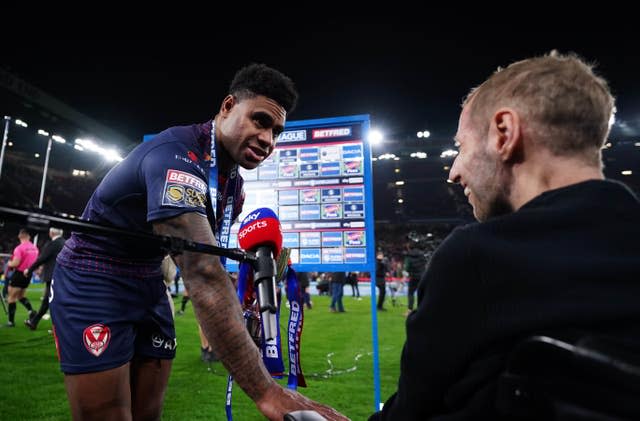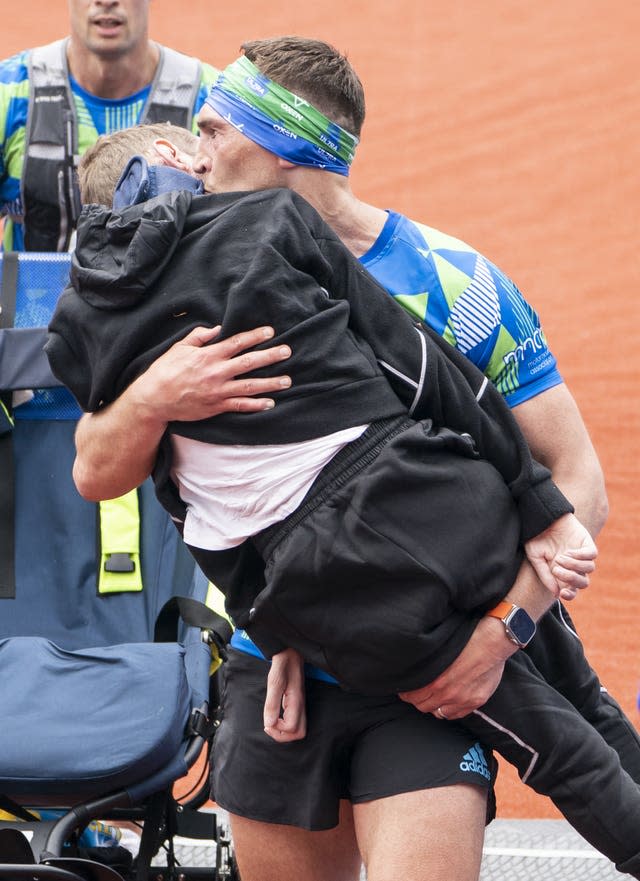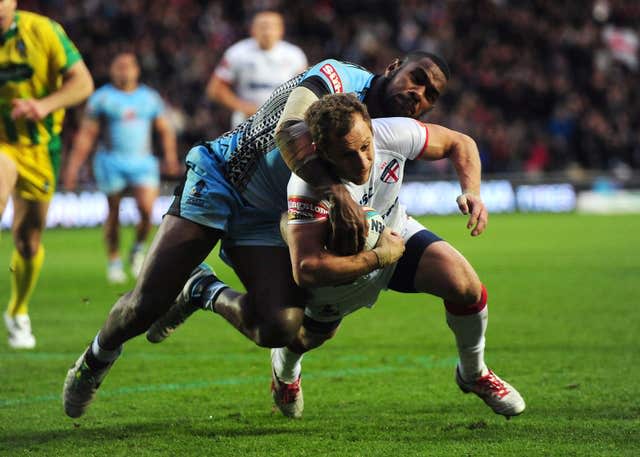Rob Burrow: The Leeds Rhinos great whose biggest battle was fought off the pitch

Rob Burrow had scarcely had a chance to start the next chapter of his career when he was struck down by motor neurone disease.
The Leeds Rhinos great hung up his boots at the end of the 2017 season and was just getting into his stride as coach of the club’s academy team when the news came that he was suffering from the incurable illness.
Thoughts inevitably turned to his long and illustrious playing career in which the 5ft 5in Burrow took some fearful head knocks as huge, clumsy forwards struggled to get their hands on the scampering half-back.
Each time, Burrow would get to his feet after an on-the-spot medical check and carry on regardless, showing no sign of animosity to his assailant and instead treating it as simply another challenge in the rough, tough world of rugby league.
It was with such stoicism that Burrow threw himself into his next challenge, staving off the advancement of a disease which attacks the nerves controlling movement, rendering muscles increasingly useless.
Burrow was just 37 and had three children under the age of eight with wife Lindsey when he made the announcement on December 19, 2019 that he had MND.
Sports fans, and those in rugby league especially, responded by raising over £160,000 for Burrow’s battle in the space of four days.

In mid-January a sell-out crowd of almost 20,000 turned up at Headingley for a joint benefit match with former team-mate Jamie Jones-Buchanan and there was hardly a dry eye in the ground when Burrow went on to play the final five minutes.
The overwhelming sense of pity the fans may have felt, though, was the last thing Burrow wanted as he bravely faced the media within hours of breaking the awful news.
“The worst thing for me is people pitying me,” he said. “I know it’s going to come, but I want to be as normal as ever.
“While I am able-bodied and feel fit and strong and healthy, I want to do normal things and not be treated any differently.”
Burrow’s first task was to travel to Scotland to meet Doddie Weir, another larger-than-life rugby character who had been diagnosed with MND two-and-a-half years earlier and had set the bar high in his efforts to raise awareness of the crippling condition.
Burrow, who brushed aside suggestions that his MND was a direct result of the proliferation of head knocks, displayed his trademark courtesy and courage as he put himself through a gruelling round of interviews, even apologising for the state of his voice which was already showing the effects of the disease.
Barrie McDermott, a former team-mate, said at the time: “The thing with Rob is that the stature he had as a player is certainly not the same as his stature as a person.
“He’s fought adversity all his career with his size and came out of the other side with so many trophies.”

By the summer of 2020, Burrow had lost his voice and began to type answers to questions with his eye-gaze machine, which used his voice from old rugby interviews.
By January 2021, he had lost the use of his hands and arms and began using a wheelchair after his legs became very weak, but his resolve to never give in grew ever stronger.
An emotional BBC documentary, ‘Rob Burrow – My Year with MND’, helped achieve his aim of raising awareness of the disease, as did his old captain Kevin Sinfield’s remarkable feat of running seven marathons in seven days, which also raised £2.7million.

Sinfield raised a further sum in excess of £1m in November 2021 with from a 101-mile run inside 24 hours from his new club Leicester Tigers to Headingley, while his Ultra 7 in 7 Challenge the following November, seven back-to-back ultra-marathons, generated more than £1.4m.
In May 2023, Sinfield carried Burrow over the finish line at the inaugural Rob Burrow Leeds Marathon after pushing his great friend for the 26.2 miles, while in December he continued his remarkable fund-raising efforts by running seven ultra-marathons in seven different cities in as many days.
Leeds plan to recognise the achievements of both Burrow and Sinfield with a statue to be erected at Headingley.

Burrow’s strength in adversity was documented in his autobiography ‘Too Many Reasons To Live’, which won second prize in the William Hill Sports Book of the Year award, and he was awarded an MBE in the 2021 New Year Honours, just days after being inducted into the Leeds Hall of Fame. He was made a CBE, along with Sinfield, for services to MND awareness in the 2024 New Year Honours.
Burrow received the Helen Rollason Award at the 2022 BBC Sports Personality of the Year ceremony, where he paid tribute to his “MND hero” Weir, who had died the previous month.
He was chief guest at the 2020 Challenge Cup final at Wembley in which Leeds beat Salford, which he was unable to attend due to the pandemic, but he was at Old Trafford in October 2021 to present the Harry Sunderland Trophy to the Grand Final man of the match, an award he had himself won on two occasions.
His amazing trophy haul also includes no fewer than eight Grand Final triumphs, while the one-club man twice won the Challenge Cup and could boast three World Club Challenges with his beloved Rhinos.

He is fifth on Leeds’ all-time list of appearance-makers, having contributed 1,103 points from 492 matches from 2001 up to his retirement in 2017, and won 15 England caps as well as making five appearances for Great Britain.
Of his 196 tries, the one he will be most remembered for was his scampering, long-range effort against St Helens in 2011, in which he ducked under the challenge of Tony Puleta, evaded the tackle of James Roby and accelerated away from the grasp of Paul Wellens.
That devastating combination of strength, elusiveness and pace perfectly summed up the career of one of rugby league’s all-time greats.
He died on Sunday at the age of 41 and is survived by Lindsey and children Macy, Maya and Jackson.
